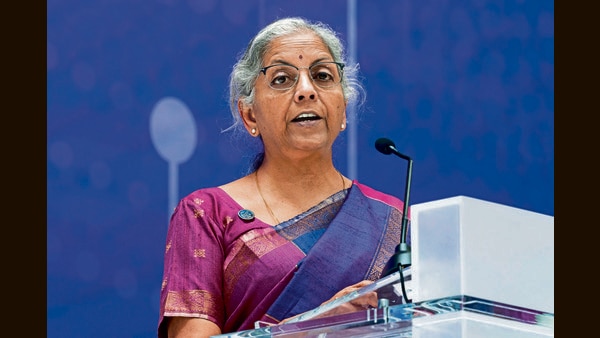A top government economist, technically and temperamentally a good catch, has said that the economy is in autopilot mode and will grow 7% until 2030 even without more reforms. Perhaps a new narrative is being invented: India’s story is one of growth without reforms.
The economist made the statement hours after the Union cabinet threw a ₹89,047 crore lifeline to BSNL. It has received ₹3.22 trillion in the past four years alone. Indian taxpayers have had to keep this public sector dinosaur alive only so that those drawing salaries and pensions from it don’t become unhappy at the time of elections with incumbent governments. Does India need reforms? Government and BSNL employees would likely say ‘no’. Taxpayers and those in sectors that could use our tax money more productively than BSNL would say ‘yes’.
Air India wasn’t sold to the Tata Group out of conviction in reforms or belief in privatisation. The public discourse had ensured taxpayers were well-versed with Air India’s mismanagement, and their patience with it had run low. BSNL seems in no such danger.
Here’s the nub of it. While a great deal of mud-slinging has become par for the course, with casual references alleging deliberate misreading of data, not caring enough about India’s well-being or not being attuned to India’s ground realities, there’s hardly any meaningful policy debate taking place among economists. Policy positions no longer seem based on economics. Instead, economists’ public utterances tend to signal a leaning towards personalities or politics, perhaps to get picked for policymaking positions, or seem to vent frustration at getting fired from such jobs.
All of which leaves economic policy weaker than it needs to be, with the government no wiser on critical, complex economic policy puzzles. Debate and discourse can help nourish policy capacity in government. It’s no secret that among India’s economic constraints is the government’s diminished capacity for sound policymaking. When finance minister Nirmala Sitharaman makes it plain in her public utterances that she’s looking for ideas on encouraging private investments, which remain unsatisfactory even after she cut corporate taxes, she does seem to be saying there’s a problem at hand. Remarkably, few economists seem to be interested in saying how to handle it. It’s apparent that the government has limited credible policy advice on two things that India endlessly struggles with—creating jobs and making the affluent pay a fairer share of taxes. But there’s little policy debate on what ought to be done.
The government appears to attract cheerleaders who seldom bother to even pretend to be even-keeled. If their words held weight in policymaking, they’d be writing more on government files than in newspapers and on social media. The Narendra Modi administration once had a reputation of listening to economists, at least on a few policy matters, and with decent results. The availability and affordability of pulses has improved after it implemented policy advice of a committee headed in 2016 by the then chief economic adviser; the RBI governor back then had championed its transition to inflation targeting. The writings of a former member in the prime minister’s economic advisory council helped bring to light risky over-optimism in the finance ministry’s fiscal math, leading to important corrections. Now even good policy ideas get tainted by association with these economists. Should only politicians be blamed for this when so many economists don’t appear economist-like in public discourse?
The United Progressive Alliance government wasn’t much luckier, although it had many technocrats with wide-ranging experience of handling economic crises, including civil services officers in key economic ministries who had been students of Manmohan Singh when he taught at the Delhi School of Economics. That exalted pool of talent couldn’t be put to optimal use, as economic advice routinely lost out to politics. The difference was that they fought on behalf of the economy inside the government while maintaining professional distance in public discourse. Economists and technocrats now typically bat for policy pronouncements in the public sphere while assuming the role of spokespersons rather than policy advisers.
An argument that growth can go on autopilot without reforms almost eliminates all scope for policy advice. Are Indian economists ceding ever increasing space to politicians on matters they should be vocal on? The government told Parliament that it will not appoint a fiscal council. Perhaps it feels that politicians and bureaucrats alone can give it the technical advice needed. Economists have done little to challenge the government’s position. In the meantime, Raisina Hill is abuzz with speculation that the government will pick a politician or a former bureaucrat to chair the 16th finance commission rather than a technocrat capable of getting to the heart of matters concerning fiscal federalism. Will economists simply look away?
To her credit, the finance minister has recognized that an echo chamber in the finance ministry wasn’t serving the cause of policymaking. Two economists with considerable social media skills were removed from policy advice roles and subsequently rehabilitated in positions where spokesperson skills can come in handy. Perhaps that’s an opening for economists to draw public attention back to their policy advice skills?
Puja Mehra is consulting editor, Mint, and the author of ‘The Lost Decade (2008-18): How India’s Growth Story Devolved into Growth Without a Story’
Download The Mint News App to get Daily Market Updates.
More
Less
Updated: 02 Jul 2023, 11:37 PM IST
#economists #bat #countrys #economy
